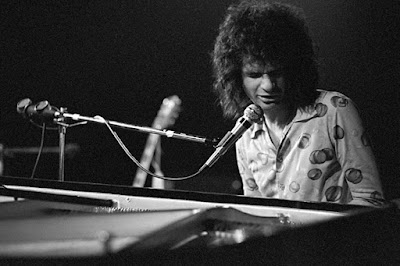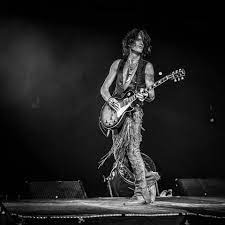DON'T SHOOT ME...Al Kooper
Though his name is not well-known among fans of today's pop-rock, guitarist/keyboardist Al Kooper contributed to some of the most important recordings of '60s rock.
He taught himself to play piano and guitar in the early '50s. When rock 'n' roll took over contemporary radio, Kooper formed a doo-wop group that performed on street corners. Kooper joined the Royal Teens when he was 15 but left the group to begin writing songs and to attend college.
Among Kooper's earliest songwriting successes was the Gene Vincent hit "I Must Be Seeing Things." His biggest hit was the 1965 #1 "This Diamond Ring," which Kooper co-wrote with Bob Brass and Irwin Levine. Performed by Gary Lewis & the Playboys, the song initially was offered to the Drifters, who turned it down.
Producer Tom Wilson, Kooper's friend, arranged for him to play organ on one of the most important singles and albums in the history of rock: "Like a Rolling Stone", from Bob Dylan's seminal Highway 61 Revisited (1965). Kooper's organ gave the track a distinctive sound, which became associated with Dylan's work for the rest of the decade. Kooper also played on Dylan's Blonde on Blonde (1966) and New Morning (1970).
In 1965, Wilson invited Kooper to play keyboards with a new blues-rock group called the Blues Project. Kooper became the main songwriter and one of the lead singers of the band, which helped introduce blues to a new generation. Kooper left the group in 1967 — to form a jazz-rock-R&B combo that he named Blood, Sweat and Tears.
Blood, Sweat and Tears cut their critically acclaimed debut, Child Is Father to the Man (1968), which featured mostly Kooper originals.Tensions within the group and from Columbia Records grew when the LP wasn't a blockbuster, causing Kooper to exit the band after the album's release.
Kooper resumed his career as a session musician, playing with the Who, Jimi Hendrix and the Stones (on their 1969 LP Let it Bleed). He also became a staff producer for Columbia and cut albums with his friend Mike Bloomfield such as Super Session.
In the '70s, Kooper helped start the careers of Lynyrd Skynyrd and the Tubes by producing their first efforts.
Kooper briefly re-formed the Blues Project in 1981, the same year he again toured with Dylan. After a lengthy quiet period, Kooper released the instrumental Rekooperation (1994).
AL KOOPER
Naked Songs (Columbia,1973)
https://www.sendspace.com/file/07egjz





Коментари
Постави коментар